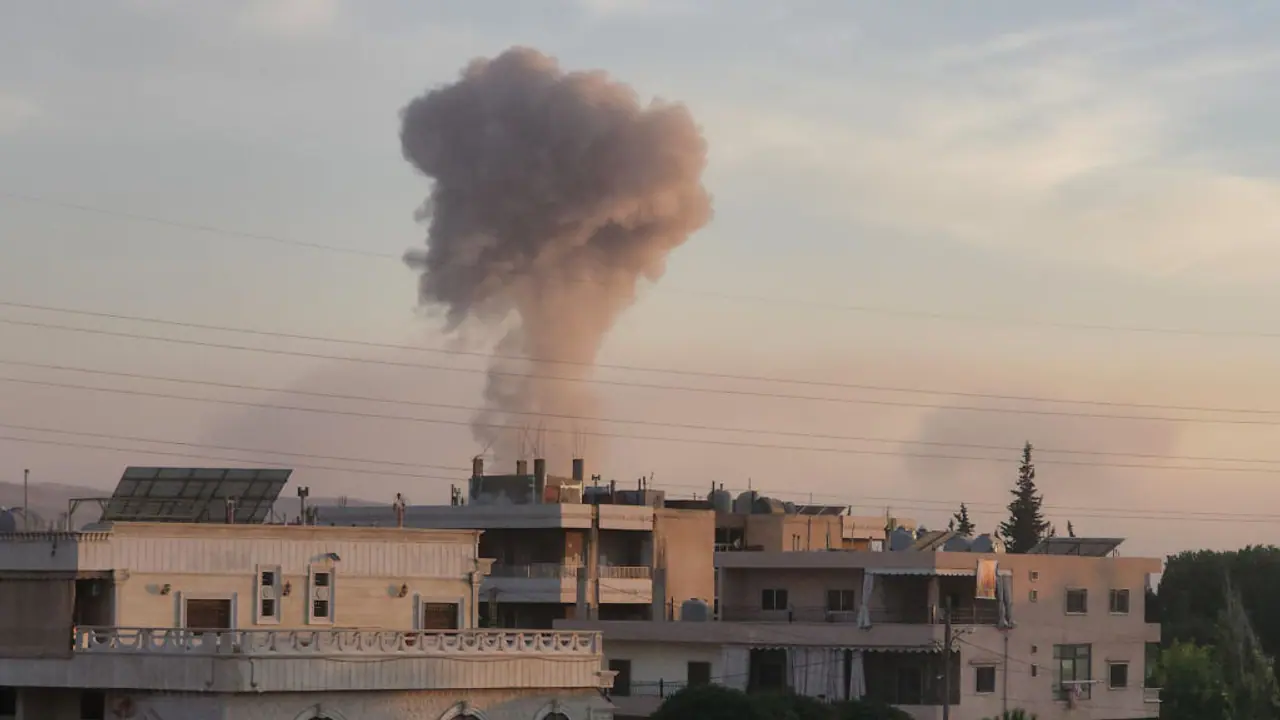The death toll from Israeli airstrikes on Lebanon has risen to 558, with at least 50 children and 94 women among the victims, according to Lebanon's health minister Firass Abiad.
The death toll from Israeli airstrikes on Lebanon has risen to 558, with at least 50 children and 94 women among the victims, according to Lebanon's health minister Firass Abiad. Since Monday, Israel has been conducting a series of intensified military strikes targeting Hezbollah positions across Lebanon, as part of its ongoing military offensive in the region. The strikes, which have also left 1,835 people wounded, have hit Hezbollah terror targets, the Israeli Defense Forces (IDF) reported.

The Israeli Air Force (IAF) continues its operations, claiming to have struck over 1,600 Hezbollah-related targets, including weapons storage facilities and command centers. The IDF has emphasized that their goal is to dismantle Hezbollah's operational infrastructure, but civilians, including children, continue to bear the brunt of the violence. Lebanon’s health ministry has reported the overwhelming casualties in hospitals, further strained by ongoing hostilities.
Overnight, Hezbollah retaliated by firing rockets into northern Israel, which resulted in fires and one reported injury due to shrapnel, according to Israeli media. The Hezbollah rocket attacks have targeted Israeli military bases and airfields, increasing the risk of further escalation.
Israeli military officials, including the country’s Chief of Staff Herzi Halevi, have stated their intention to ramp up military operations in Lebanon. “Hezbollah must not be given a break – we will speed up the offensive operations today,” Halevi said.
In a statement on X, the Israeli forces confirmed, "The IDF has now begun another wave of attacks against Hezbollah terrorist targets in Lebanon."
In another statement on X, the IDF said, "Fighter jets of the Air Force completed a short time ago another wave of attacks in Lebanese territory, under the direction of Amman and the Northern Command. As part of the attacks, buildings where weapons, launchers and other military infrastructure were stored were destroyed."
According to a Guardian report quoting sources, one of the main objectives of the ongoing airstrikes is to signal to Iran that Israel is prepared to act decisively against any potential threats in the region. The source added that Israel would continue targeting additional sites in Lebanon unless Hezbollah ceases its rocket attacks and military operations.
The humanitarian toll of the conflict is mounting, with thousands of Lebanese fleeing southern regions of the country to escape the bombardment. Hospitals are struggling to cope with the growing number of casualties, a situation worsened by last week's destruction of communication equipment like pagers and walkie-talkies, according to the World Health Organization.
Lebanese authorities and international organizations have expressed concern that the conflict could escalate further, potentially drawing in other regional players. Iranian President Masoud Pezeshkian warned in a CNN interview that the violence could engulf the entire region, likening the situation to Gaza, where heavy casualties have been reported since Israel began its military operations against Hamas in October 2023.
The Israeli offensive in Lebanon is part of a larger military campaign that began in response to the surprise attack by Hamas on southern Israel on October 7, 2023. The attack killed nearly 1,200 Israelis and resulted in more than 250 people being abducted by Hamas militants into Gaza, with some still being held hostage. Since then, Israel’s airstrikes have claimed the lives of over 41,000 Palestinians in the Gaza Strip, with tens of thousands more wounded, according to the Gaza-based Hamas-led health ministry.
Efforts to independently verify the casualty figures in both Lebanon and Gaza have been limited due to media restrictions. At least 116 journalists and media workers have been killed during the ongoing conflict, and media access, particularly in Gaza, has been severely restricted by Israeli authorities.
Lebanon’s Hezbollah, backed by Iran, has played a central role in the military confrontation, continuing to fire rockets into Israel despite the devastating toll of the Israeli airstrikes. Hezbollah's actions have raised fears that Lebanon could become another battleground akin to Gaza, with the country facing a growing humanitarian crisis.
The IDF has reiterated its commitment to degrading Hezbollah’s capabilities, warning that it would continue its operations if the militant group fails to "grasp the message." Secondary explosions reported at some of the targeted sites suggest that Hezbollah's weapons stockpiles are being affected, but the ongoing exchanges between Hezbollah and Israeli forces suggest that the conflict is far from over.
As the death toll rises, particularly among children and civilians, the international community faces growing calls to intervene and prevent further escalation. Iran’s leadership has cautioned that the situation could spiral into a full-scale regional conflict, particularly if Western powers continue to support Israel’s military operations.
